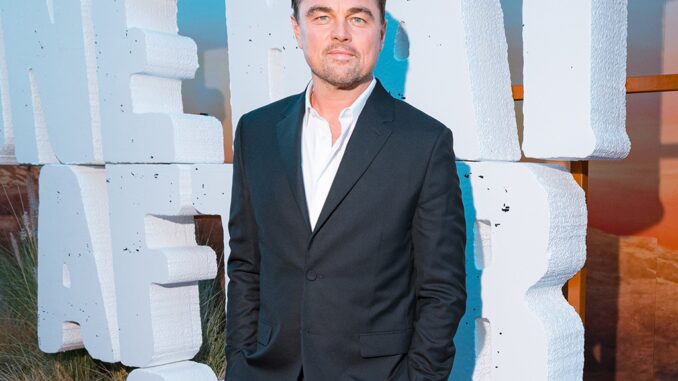
The Unsinkable Return: Leonardo DiCaprio and the Echo of a Gilded Ghost
The headline hits like a rogue wave: "Leonardo DiCaprio Plans a Return to His Most Iconic Role." A collective gasp, a frisson of nostalgia, and then, inevitably, a murmur of confusion. For the vast majority, the role that springs unbidden to mind, shimmering with youthful romance and an icy, tragic end, is Jack Dawson. But Jack Dawson, as every heartthrob-smitten teenager and teary-eyed adult knows, perished in the frigid North Atlantic, clinging to a door that surely had room for two. So, what could this audacious announcement possibly mean? It’s not merely a return; it’s an invitation to an archaeological dig into the very nature of iconic roles, the relentless march of time, and the elusive art of the comeback.
To contemplate DiCaprio re-inhabiting Jack Dawson is to confront an artistic impossibility. The very tragedy that cemented Jack’s iconic status – his selfless, fleeting love, his vibrant youth snuffed out too soon – precludes any straightforward resurrection. We remember him as the dashing, penniless artist, his spirit as boundless as the open sea, his smile capable of melting glaciers. To see a seasoned, Oscar-winning Leonardo DiCaprio, the gravitas of a Hugh Glass or the manic energy of a Jordan Belfort etched into his features, attempting to rekindle that boyish spark, would be less a triumphant return and more a spectral impersonation. It would be a betrayal of the character’s definitive end, a capitulation to reboot culture’s ravenous maw, potentially tarnishing not only his own formidable legacy but also the shimmering, poignant memory of the original.
But the phrase "most iconic role" is a potent one, loaded with the weight of audience expectation and critical acclaim. While DiCaprio has forged a career path littered with indelible characters – the intricate dreamer Cobb, the enigmatic Gatsby, the morally ambiguous Belfort – none quite capture the global, cross-generational recognition of Jack Dawson. Titanic wasn't just a film; it was a cultural phenomenon, a rite of passage for millions, and Jack was its beating heart. Therefore, any "return" cannot be literal; it must be profoundly metaphorical, an artistic statement delivered with knowing irony or poignant reflection.
Perhaps the "return" manifests as a film about the enduring shadow of an iconic role. Imagine DiCaprio playing an aging actor, forever haunted by the romantic hero who launched his career. He is approached by a relentless studio, eager to exploit nostalgia with a ludicrous sequel – "Titanic: The Thaw" or "Jack's Ghost Ship." The film could become a scathing satire of Hollywood’s current obsession with intellectual property, a meditation on the burden of fame, and the chasm between an actor’s youthful self and their present-day artistic ambitions. Here, DiCaprio wouldn’t be playing Jack; he’d be playing the idea of Jack, or rather, the idea of an actor forever tethered to his most famous creation, struggling to reconcile the glittering ghost with his own evolving identity.
Another illustrative possibility could see a more subtle, thematic return. DiCaprio might star in a film that echoes the core themes of Titanic – forbidden love, class divides, impending doom – but through the lens of his mature artistic sensibility. He could play an older man reflecting on a lost, passionate love, a narrative that subtly mirrors Jack and Rose's tale without directly involving them. The "iconic role" then becomes a spiritual predecessor, a ghost in the narrative machine, a silent, knowing wink to the audience that acknowledges the past while forging new ground. This would allow DiCaprio to leverage the emotional resonance of his most famous role, channeling its spirit into a fresh, perhaps more somber, exploration of love, loss, and the passage of time.
Ultimately, the announcement, whether real or a tantalizing hypothetical, forces us to question our own relationship with cinematic icons. Do we truly want to see our heroes resurrected, aged, and possibly diminished? Or do we prefer them preserved in the amber of their original narratives, perfect and unchanging? DiCaprio, a master of reinvention, has consistently defied expectations. If he truly plans a "return" to his most iconic role, it will not be a simple re-treading of a familiar path. It will be an act of profound artistic intelligence, a sophisticated commentary on his own legacy, the nature of celebrity, and the enduring power—and perils—of a character who truly became unsinkable in the cultural imagination. It’s not about finding Jack Dawson alive; it’s about understanding the indelible mark he left on the actor, and on us all.